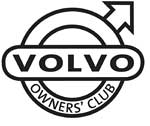

Photographs can be seen in our Volvo Gallery
The XC60 Concept - Six-cylinder bio ethanol engine
19 December 2006
The chosen power train for the Volvo XC60 Concept is a six-cylinder, 3.2-liter bio ethanol engine with all wheel drive.
The engine offers the driver dynamic performance in the form of 265 horsepower and 251 lb-ft (340 Nm) of torque – with emissions of fossil carbon dioxide dropping by up to 80 percent when driving, compared with the same engine running only on gasoline.
Gothenburg, SE (December 19, 2006) - At the moment, three of Volvo Cars’ nine models – the C30, S40 and V50 – are available in nine European markets with the bio ethanol powered FlexiFuel alternative. These cars are all powered by four-cylinder engines.
"We believe that FlexiFuel has great potential for larger engine sizes and we are planning to expand our range of bio-ethanol powered engines in the coming years," says Magnus Jonsson, Senior Vice President, Research & Development at Volvo Cars.
The powertrain for the XC60 Concept is using the same six-cylinder, in-line petrol engine that was introduced in the new Volvo S80 in 2006. The engine has been optimised for E85 (85 percent bio ethanol, 15 percent gasoline). This gives 265 horsepower and 251 lb-ft (340 Nm) of torque and acceleration from 0-60 mph in 8.2 seconds. Top speed is approximately 143 mph (228 km/h).
The fuel economy when running on E85 is 19.2 mpg (12.3 litres/100 km). This is a competitive figure for this type car, since the energy content of ethanol is 40 percent lower than that of gasoline. Bio ethanol is also an entirely renewable fuel that can be produced from just about any biomass source, such as corn, wheat, sugarcane and cellulose. This means that emissions of fossil carbon dioxide drop by up to 80 percent when driving on bio ethanol E85, compared with the same car running on gasoline.
On top of the environmental benefits above, in many markets the car owner is compensated at the pump through the lower price on bio ethanol.
Bio ethanol on the move
Renewable bio ethanol is a fuel that is on the move in Europe and Volvo Cars has launched FlexiFuel models in several new markets this autumn and will continue to do so in 2007. Markets to get Volvo’s FlexiFuel cars outside Sweden are France, Norway, the Netherlands, Spain, United Kingdom, Ireland, Belgium, Austria and Switzerland. Volvo Cars predicts sales of 7,000 FlexiFuel cars in 2007.
Presently there are 23 plants producing ethanol in Europe and this figure is expected to rise to just over 60 in 2008. All told, about 720 million gallons (2.7 billion litres) of ethanol are produced annually within the European Union, primarily from sugar beet and various grains. Capacity is expected to increase threefold by 2008.
As of August of 2006, the United States had 101 bio ethanol plants in operation and with a capacity of 4.8 billion gallons per year. Additionally, 39 bio refineries are under construction and 7 more are expanding, which will add more than 2.5 billion gallons of capacity when complete. Ethanol is blended in 40 percent of the U.S. gasoline supply and there are already about 1,000 filling stations for E85 in the United States.
Environmental benefits
"One single renewable fuel will not be able to replace today’s fossil fuels, and the range of alternative fuels will probably be far wider in the future. Many different fuels and technologies are therefore developed in parallel. Ethanol reduces dependency on fossil fuels and Volvo Cars’ FlexiFuel programme makes a vital contribution to our strategy of environmental sustainability," concluded Arp.
Legal | Privacy | Contact Us | Search | Site Map
Volvo Owners' Club Limited® 1962-2025




